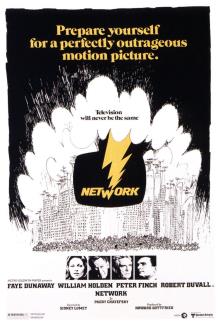1958: The Long Hot Summer
The Long Hot Summer (Ritt, 1958) 6/10
 In the wake of Elia Kazan's immensely successful 1951 adaptation of Tennessee Williams' Streetcar Named Desire, Hollywood spent a good portion of the 1950's flirting with the New South. Incorporating notions of traditional Southern hospitality with the then fashionable adoption of sub-Freudian baggage, Hollywood's studios produced a body of often-sex drenched work set in backwater towns, decayed plantations and dying patriarchal communities.
In the wake of Elia Kazan's immensely successful 1951 adaptation of Tennessee Williams' Streetcar Named Desire, Hollywood spent a good portion of the 1950's flirting with the New South. Incorporating notions of traditional Southern hospitality with the then fashionable adoption of sub-Freudian baggage, Hollywood's studios produced a body of often-sex drenched work set in backwater towns, decayed plantations and dying patriarchal communities. Picking up momentum toward the end of the decade, films such as Cat On A Hot Tin Roof, Baby Doll and The Long Hot Summer dissected concepts of Southern life: centralized on the dichotomy between young and old, modernity and tradition, past and present. The latter film is a prime example of this sub-genre: an often steamy and sultry piece of work, overcooked in its dramatic statements and false in its preposterous atmospherics. Adapted from a series of short stories by legendary Southern author William Faulkner, the film is best remembered today for launching the career of Paul Newman and his subsequent romance to co-star Joanne Woodward.
Sticky and sweaty, The Long Hot Summer exudes the sensibilities that popularized Hollywood's investigation into the modern South. Set in a rural Mississippi hamlet alongside the river, The Long Hot Summer centers upon Ben Quick (Paul Newman), the son of notorious hellraiser who enters a town dominated by local businessman Will Varner (Orson Welles). Owning everything from the cotton gin to the local pharmacy, Varner maintains control and influence over every spectre of the town from his employees to his family members.
Desperate for a job, Ben obtains a position in the Varner household as a sharecropper and resides in ramshackle lodgings bordering Varner's extensive land. But despite his contempt for Ben's father, Varner soons takes Ben into his heart as his surrogate son. Unlike the bombastic Varner, his children are viewed as incomplete individuals unable to follow in their father's arrogant footsteps. His daughter Clara (Joanne Woodward) is an uptight schoolmistress whose bland exterior is only matched by her equally dull beau Alan (Richard Anderson), while his effortless son Jody (Anthony Franciosa) lacks the gritty determination and menace Varner believes necessary to continue his regional empire.
At the heart of The Long Hot Summer is an extensive generational confrontation between Varner and his children analyzed through ideas of strength and weakness. Desiring for complete control over his family, Varner attempts to force a union between Ben Quick and his daughter Clara, despite her dignified objections. His opinion of women can be reflected in his relationship with a local aging prostitute (Angela Lansbury), who is simply a vehicle for physical pleasure and fleeting companionship. Yet, Clara rejects this concept. She believes in her education, her possibilities for the future and ability to intelligently and independently set her own course. Detached from her father, she believes she does not need to utilize her father's name and reputation to succeed.
Her brother Jody on the other hand is a cowardly fool. Realizing his son lacks neither the courage, nor the guile to operate a business, Varner seeks out the equally morally corruptible Ben Quick to continue were his own progeny have failed. Whereas, Quick desires to be a self-made man, Jody has rested upon his father's laurels: believing in his God-given right to inherit all of his father's material and economic possessions. Rather than spending his time learning his father's trade, Jody has failed through his own laziness and intellectual ineptitude: whiling around his days engaging in "recreational" activities with his nymphomaniac wife in their bedroom to compensate for his cerebral impotence.
Stylized around the studio's equally tawdry Peyton Place released the year before, Fox's production of The Long Hot Summer transplants the former's tale of upper-class indiscretions to the Deep South. The result is a film that flares between tense dramatic performances and a ridiculous, turgid script. Newman is fantastic in his raw earthiness as the untamed Quick, a characteristic to which he would add a degree of bleakness five years later in his superior collaboration with Ritt, 1963's Hud. Woodward is equally debonair as the cool-hearted schoolteacher, while the flamboyant Welles adds a liveliness to the proceedings.
Sweltering in a turgid swollen atmosphere, Ritt's film creates a theatrical environment belied by a slew of falsities from the dearth of African-American characters to the messy Shakespearan comedy of the film's illogical finale. When Ritt attempts to neatly tie up the film's loose ends, these deceits move to the forefront and sit ill-perched alongside the sublime dramatic sparring between Newman and Woodward that breathes an aura of genuine intrigue into a film that drifts between dramatic reality and stage-bound absurdity.
* The Long Hot Summer is available on DVD through Fox Home Video
Copyright 2007 8½ Cinematheque


